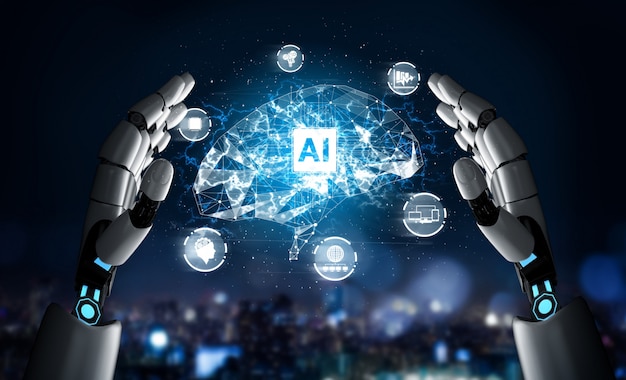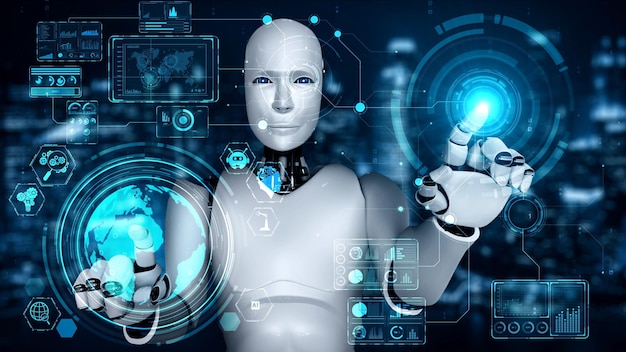Artificial intelligence (AI) is revolutionizing the way we live, work, and interact with technology. As a rapidly advancing field, AI encompasses a range of technologies and methodologies that enable machines to mimic human intelligence and perform tasks that traditionally required human cognition. From autonomous vehicles to personalized recommendations, AI has permeated various aspects of our lives. In this article, we will delve into the multifaceted world of artificial intelligence, exploring its capabilities, applications, and implications for the future.

The Foundations of Artificial Intelligence:
To comprehend the intricacies of AI, it is essential to understand its underlying foundations. AI can be broadly classified into two categories: narrow or weak AI and general or strong AI. Narrow AI refers to systems designed to perform specific tasks, such as voice assistants or image recognition algorithms. On the other hand, general AI aims to replicate human-level intelligence and adapt to various tasks and contexts. While strong AI remains an aspirational goal, current advancements primarily revolve around narrow AI applications.
Applications of Artificial Intelligence:
a. Healthcare:
AI is making significant strides in the healthcare sector, enhancing diagnostics, drug discovery, and patient care. Machine learning algorithms can analyze medical data, aid in early disease detection, and provide personalized treatment recommendations. Additionally, AI-powered robotic systems are revolutionizing surgery by improving precision and reducing human errors.
b. Transportation:
The transportation industry is undergoing a transformative revolution through AI. Self-driving cars, enabled by deep learning algorithms and sensor technology, have the potential to enhance road safety, reduce congestion, and improve transportation efficiency. Moreover, AI-powered traffic management systems can optimize traffic flow and reduce travel times.
c. Finance:
AI is reshaping the financial landscape, powering algorithmic trading, fraud detection, and customer service. Machine learning algorithms can analyze vast amounts of financial data in real-time, identifying patterns, predicting market trends, and making informed investment decisions. Furthermore, AI chatbots are enhancing customer experiences by providing personalized recommendations and efficient support.
d. Education:
AI is being integrated into education to personalize learning experiences and improve outcomes. Intelligent tutoring systems can adapt to individual student needs, providing personalized feedback and guidance. AI-powered tools can also automate administrative tasks, allowing educators to focus on student engagement and pedagogical innovation.
e. Entertainment:
AI is transforming the entertainment industry, enabling personalized content recommendations, virtual reality experiences, and immersive storytelling. Recommendation algorithms analyze user preferences to suggest movies, music, and books tailored to individual tastes. Additionally, AI-generated virtual characters are enhancing gaming experiences, simulating human-like behavior and interactions.
Ethical Considerations and Challenges:
The rapid advancement of AI brings forth ethical considerations and challenges that need to be addressed. One crucial aspect is bias in AI algorithms, which can perpetuate societal inequalities if not properly mitigated. It is essential to ensure diverse and inclusive datasets to avoid biased outcomes. Additionally, concerns regarding privacy, security, and the impact of AI on employment need careful deliberation to strike a balance between progress and social welfare.
The Future of Artificial Intelligence:
Looking ahead, the potential of AI seems boundless. As technology evolves, AI is expected to permeate even more aspects of our lives. Advancements in natural language processing and computer vision will lead to more seamless human-machine interactions. AI-driven advancements in fields like robotics, healthcare, and climate change mitigation hold promise for solving some of humanity's most pressing challenges.
Artificial intelligence has emerged as a transformative force, revolutionizing industries and reshaping societal paradigms. From healthcare to finance, transportation to education, the applications of AI are diverse and far-reaching. While ethical considerations and challenges persist, AI's potential to drive innovation, improve efficiency, and enhance human experiences cannot be denied. As we embrace the possibilities of artificial intelligence, responsible development and collaboration will be key to harnessing its transformative power for the benefit of humanity.



You must be logged in to post a comment.